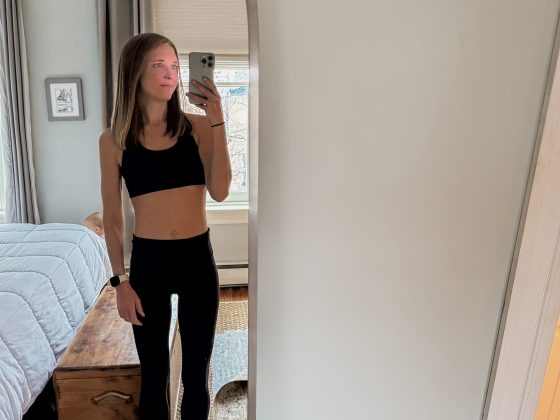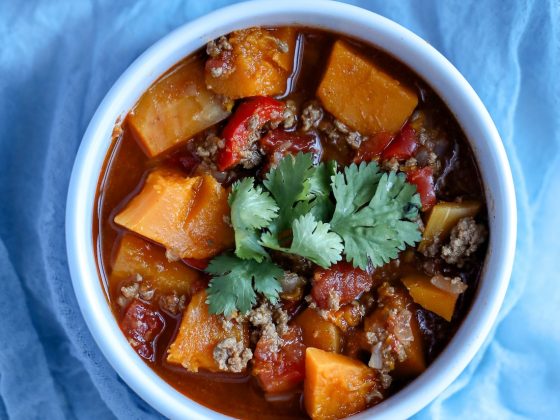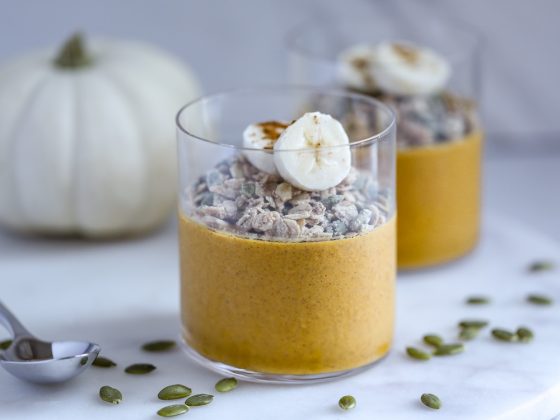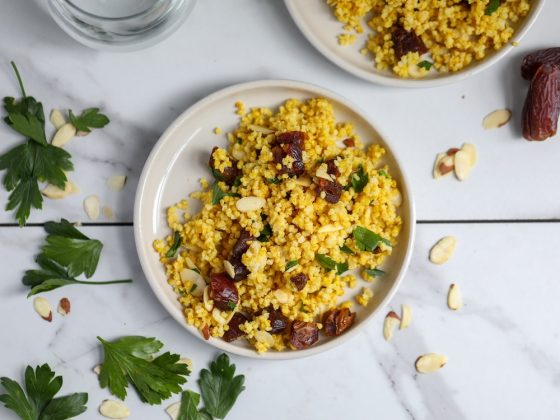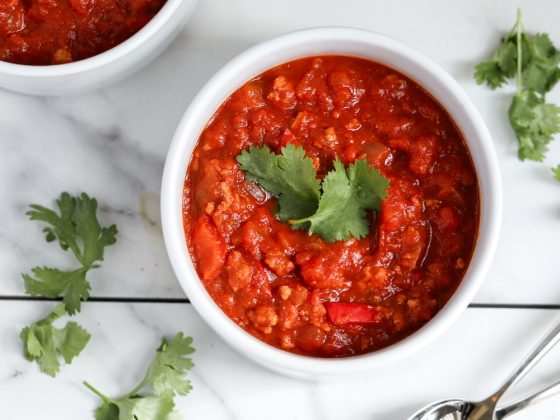Dr. Nisha Patel, MD, MS is a food blogger, content creator, and educator on a mission to empower individuals to embark upon healthful lifestyle changes. She was inspired to start her Instagram platform @DrPlantel after her own health journey and her culinary medicine education, an extra training she undertook to learn more about how food is medicine.
A few years ago, during Dr. Patel’s medical residency, she found concerning changes in her blood sugar and lipid panel during routine blood work. With a family history of diabetes and cardiovascular disease, she knew she had to change her diet and lifestyle in order to regain and maintain optimal health. She slowly made the transition to healthful eating and has not looked back ever since.
We chatted with her about culinary medicine, cooking plant-based meals, and finding a balance when making the transition to healthful eating. She highlights that we are what we eat, emphasizing how nutritious food can help you reach your health goals and prevent disease.
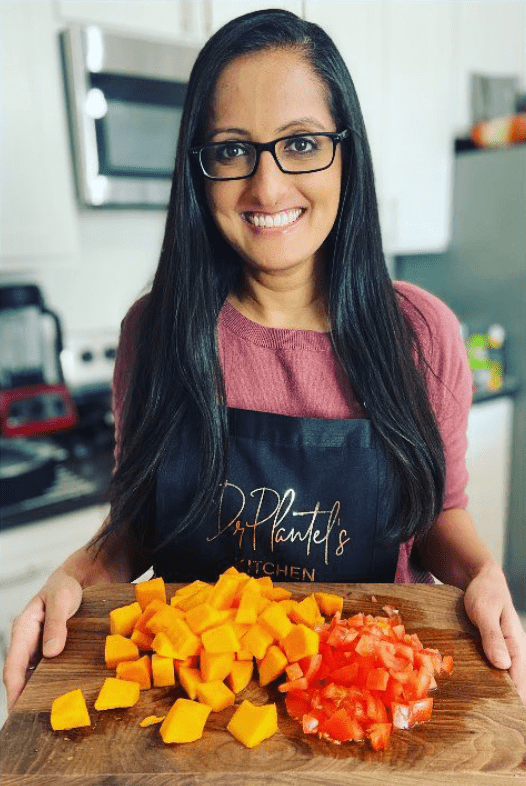
Healthified Magazine: Thank you for speaking with us today. Tell us a bit about your culinary medicine education and why you choose internal medicine as your medical specialty.
Dr. Patel: Internal medicine physicians, or internists, are specialists who care for adult patients with a wide variety of chronic diseases such as diabetes, cardiovascular disease, high blood pressure, cancer and chronic lung diseases to name a few. What I love about internal medicine is that no two days are the same. It keeps me on my toes! It wasn’t until I saw concerns in my own health after medical school and the end of residency that I really appreciated the importance of practical nutrition and healthful eating. This drove me to receive extra training in culinary medicine, which I think of as the “how-to” of nutrition and health education. It is not enough to tell someone to eat healthfully, we have to show them how and work with what they have available to them.
HM: In your opinion, how is good nutrition related to optimal health?
Dr. Nisha Patel: A healthful diet and eating habits are the foundation for health. I want to emphasize that the word “diet” comes from the Greek word. “Diaita” which means “way of life.” I don’t use the word diet like our society has come to define it. Unfortunately over time, the definition of “diet” has become distorted. As physicians, throughout training, we learn about caring for our patients by learning the science of medicine, but unfortunately the importance of a healthy diet and lifestyle are not emphasized.
HM: When transitioning to a healthier lifestyle, how do we find a balance? In other words, how do we make sure we are not restricting ourselves when it comes to healthful eating?
Dr. Patel: I think the first step is understanding that the path to making sustainable healthy lifestyle changes, especially to your eating, doesn’t have to be all or none. I think many individuals, including myself in the past, used to think that in order to be healthy, I had to stop eating this and only eat this. I often say there is “no one size fits all” when it comes to healthful eating. We are all human at the end of the day and no one is perfect. Perfection is overrated and just not sustainable. For me, a restricted dietary pattern never worked and I was consumed with guilt whenever I would deviate from it. A healthy relationship with food is very important. Just because I have a cookie one day doesn’t negate the fact that my overall dietary pattern is healthy. Focus on your overall dietary pattern instead of trying to achieve day to day perfect.
HM: What are some tips you have for sticking to healthful eating habits?
Dr. Patel: It really helps to make changes as a family. I don’t have children yet but I am so thankful for a very supportive husband who has made these healthful eating habits with me. I think the most important thing to remember is to be patient with yourself and your family when making these changes. You aren’t going to like everything about healthful eating. Once you find what you like, stick with it and build from there. For instance, one person may like carrots steamed while another person may like them raw. That is totally okay! The whole point is to find the most enjoyable way for you to eat healthful foods. Don’t get bogged down by all the nuances.
HM: For our picky eaters out there that don’t like fruits or vegetables, do you have any suggestions on how to prepare them?
Dr. Patel: I often tell people that I used to be a vegetarian that didn’t like any vegetables (except carrots!). I have come a long way! What is important to remember is you should eat them in whatever way is enjoyable to you. This is why Culinary Medicine exists. Culinary Medicine emphasizes that joy of tasty, healthful eating by teaching people the practical skills to achieve this. People often assume the only way vegetables or fruits should be consumed is raw but that may not be enjoyable to many. It wasn’t for me. Through trial and error I found ways to incorporate more fruits and vegetables into my eating in ways that made sense to me. One of my favorite things to do is saute spinach or another leafy green with bell peppers and add this to my pasta sauce. Grain bowls or “taco bowls” are a great way to include a wide variety of nutrient dense foods. My favorite taco bowl includes cilantro lime brown rice, black beans, corn salsa and avocado salsa. What is great about bowls is that they can be customized to each individual’s taste preference, especially if you have “picky” eaters in the family. I am also a huge fan of smoothies. Smoothies are a great customizable dish to incorporate many different fruits and vegetables!
HM: As a physician, you must have seen quite a few cases where diet and lifestyle interventions could have halted the progression of the disease. So can making and sticking with healthful dietary and lifestyle changes prevent disease and promote longevity?
Dr. Patel: Yes! I often say that a healthful lifestyle should be the backbone to the prevention and treatment of many chronic diseases, especially those that are diet related. I also 100% agree with appropriate medical treatment when needed (prescription medications, procedures, etc.). I am a physician and I will always advocate for evidence–based medicine and science. It is time to bring back the focus of a healthful lifestyle into mainstream medical care. This rings especially true when it comes to what we eat. There is a lot of misinformation out there, especially in the nutrition world. This is why I am pushing for practical evidence based nutrition education in medical training. Physicians and healthcare providers are in an unique position to empower people (their patients) with the knowledge and skills so that they may lead healthier lives. It is going to take a village to make the world a healthier place, we need all hands on deck!


